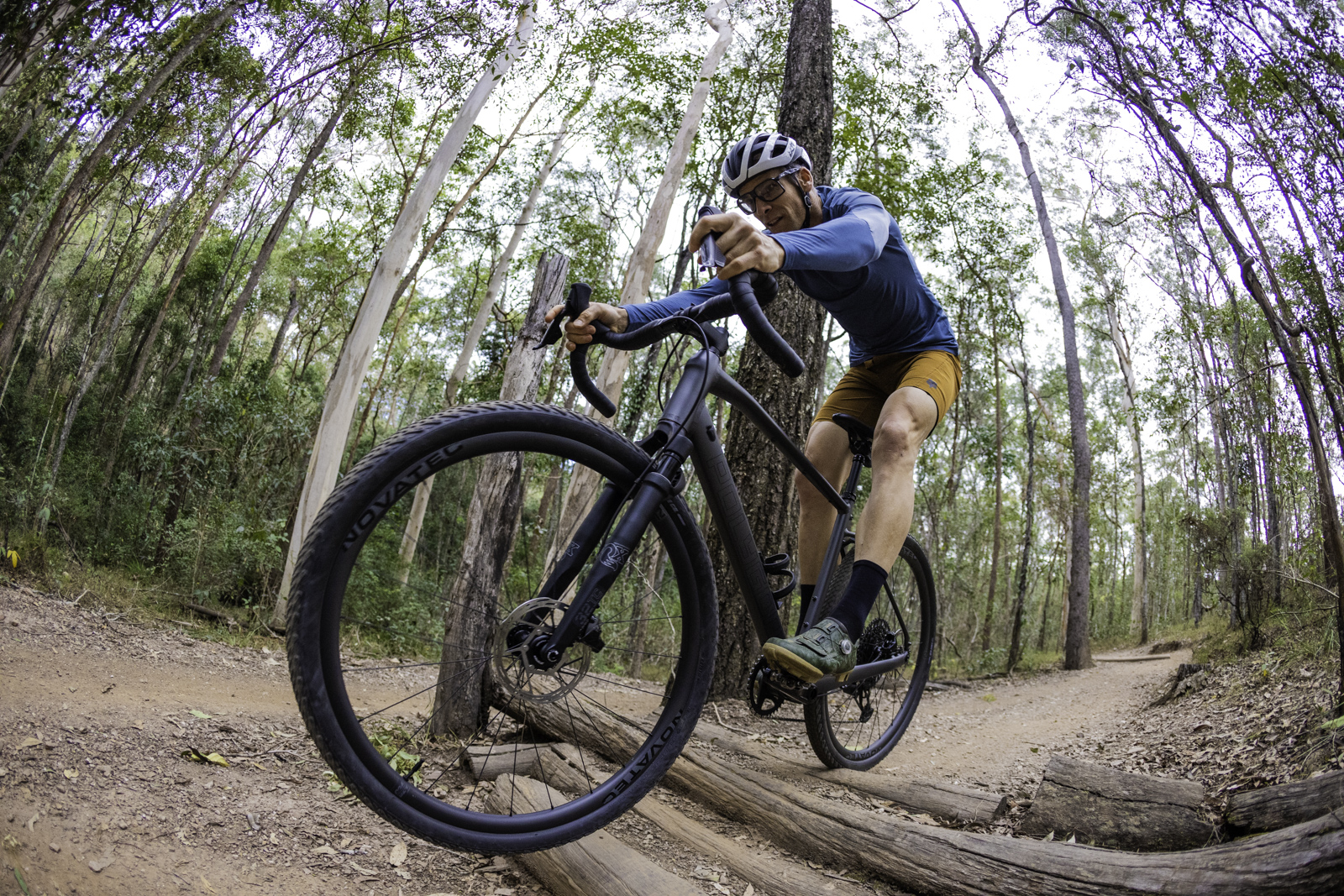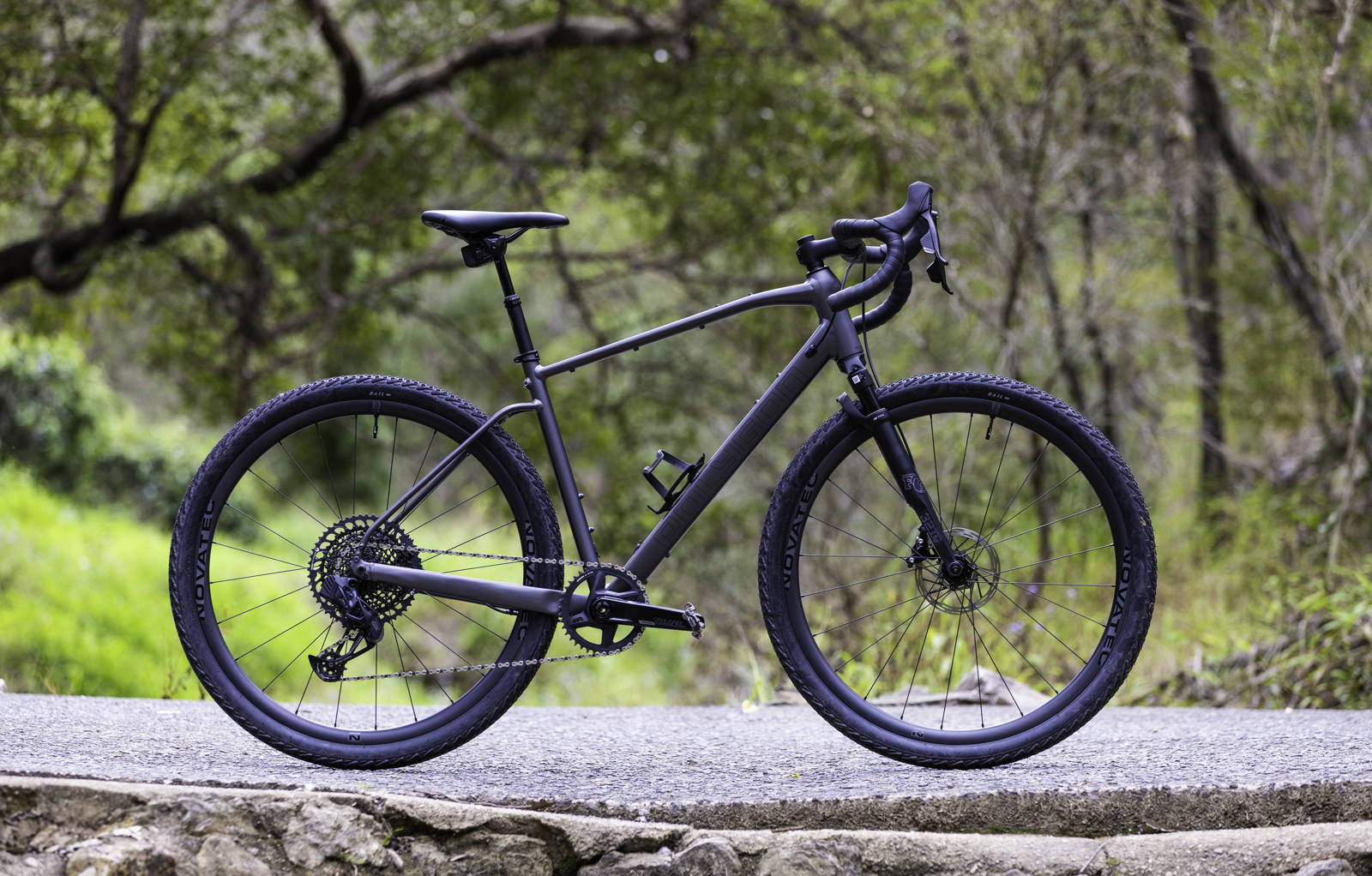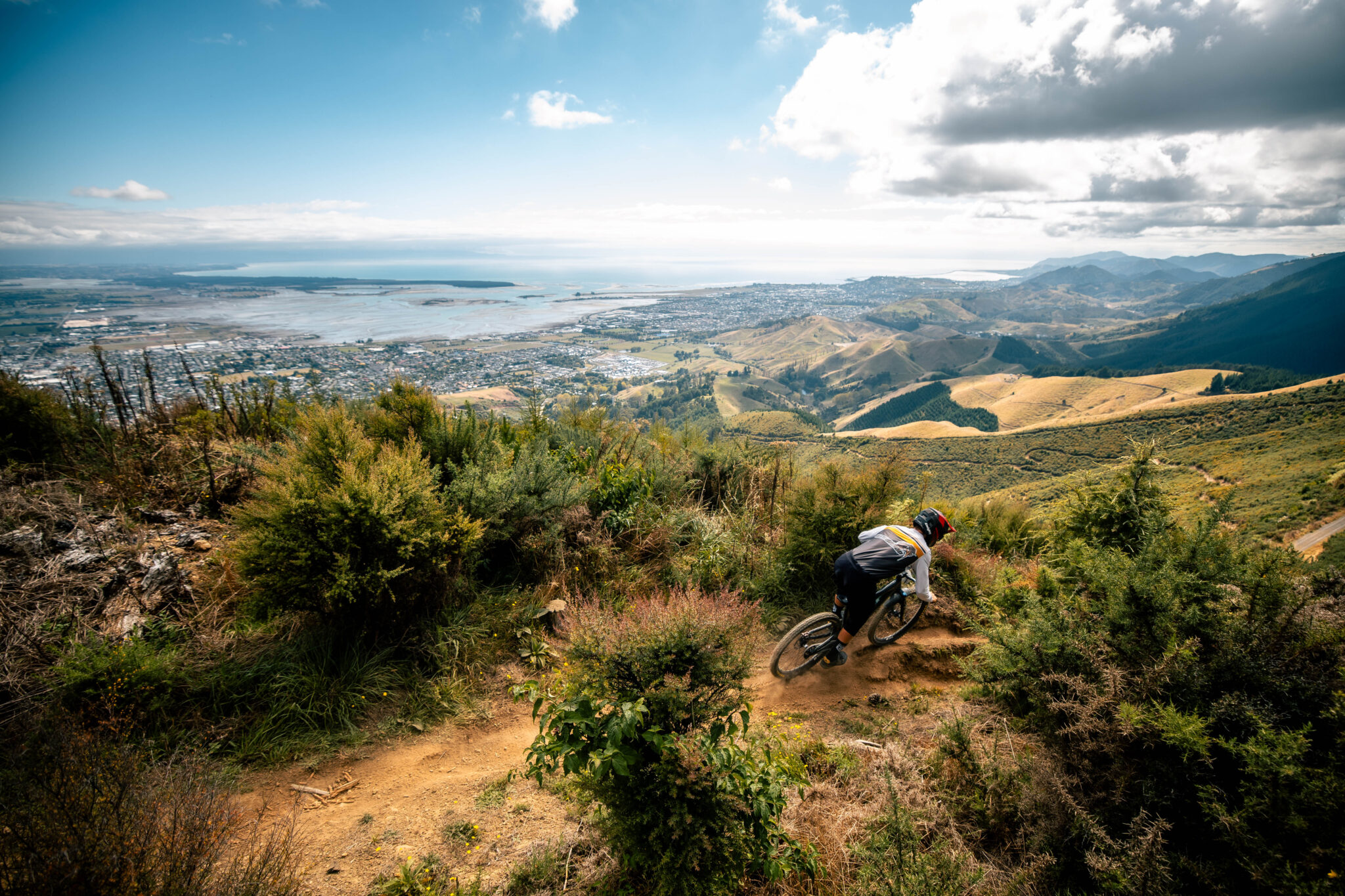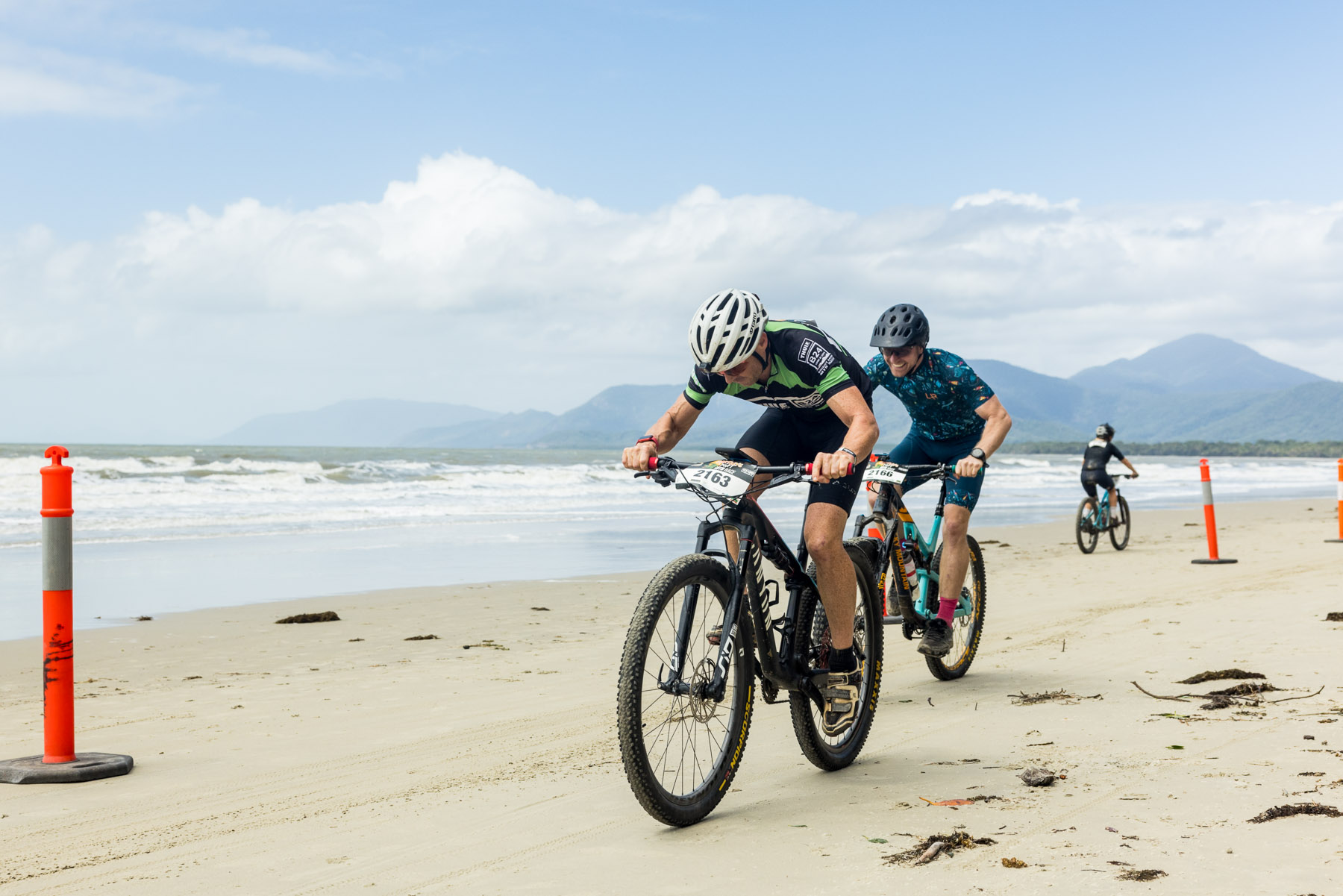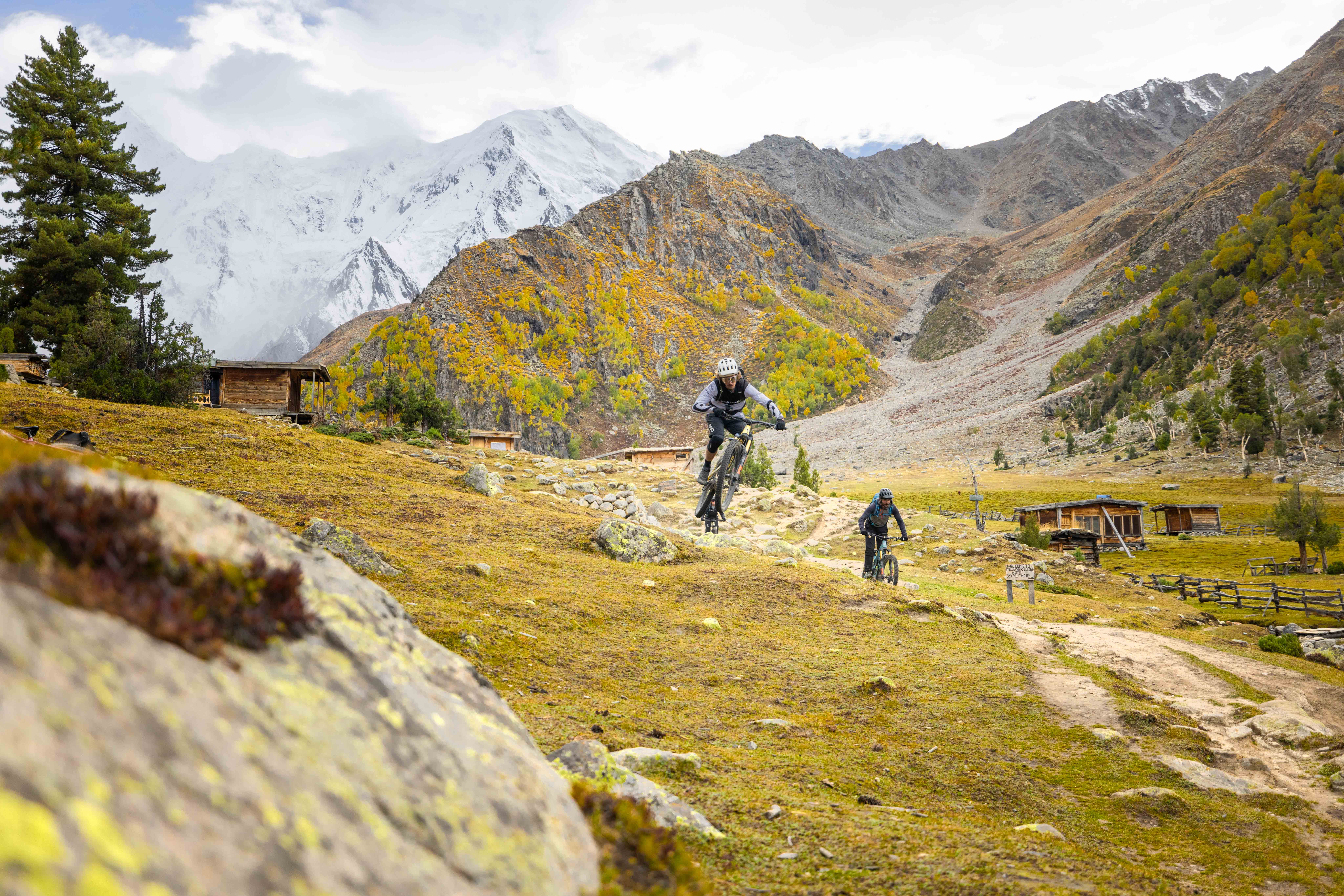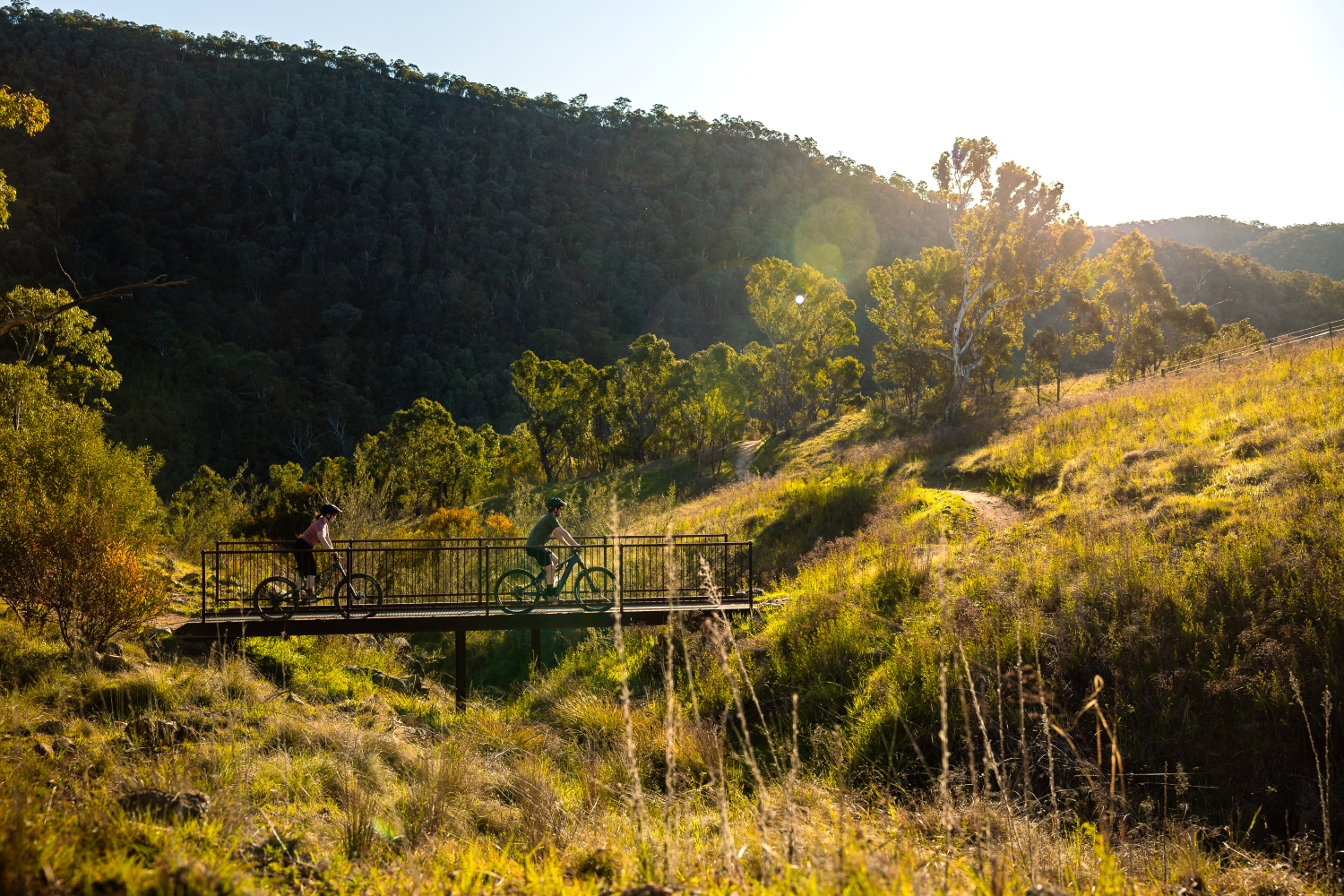TESTED: Polygon Bend V9X gravel bike
The Polygon Bend gravel bike range was redesigned for 2023, and the top Bend V9X comes ready to tackle just about any adventure.
Polygon Bikes are best known for their value-oriented range of mountain bikes, especially their Siskiu line up. You would be hard pressed to head to the trails on the weekend and not see someone aboard a Siskiu of one type or another with a grin as wide as their handlebars. Polygon have worked to bring a wide range of very capable mountain bikes to market at prices to work with just about any budget. Of course, their range is much broader than just trail and all-mountain bikes, and Polygon have a popular range of road bikes, gravel bikes and some hard-hitting gravity bikes as well.
Recent Polygon bike tests:
Polygon Collosus N7 Enduro bike
Polygon Siskiu T6E trail e-bike
Polygon Collosus N8E Enduro e-bike
Polygon Siskiu D6
The Polygon Bend has long been a well-regarded gravel bike, but earlier this year I heard there was a new model in the works. Gravel sure has had a bit of a buzz around it of late, and the demands of whatr a gravel bike should be capable of, and therefore what the features are, has been evolving. In late July, Polygon released three new Bend gravel bikes, starting with the $2299 Bend R7, and going up to the $5299 Bend V9X we have on test. This one is the top model, but built on the same frame. Polygon have equipped this bike with a 1×12 wireless SRAM group set, carbon wheels with 50mm tyres, a SRAM AXS dropper post and the Fox 32 TaperCast suspension fork. You can buy Polygon's direct from Bikes Online in Australia.
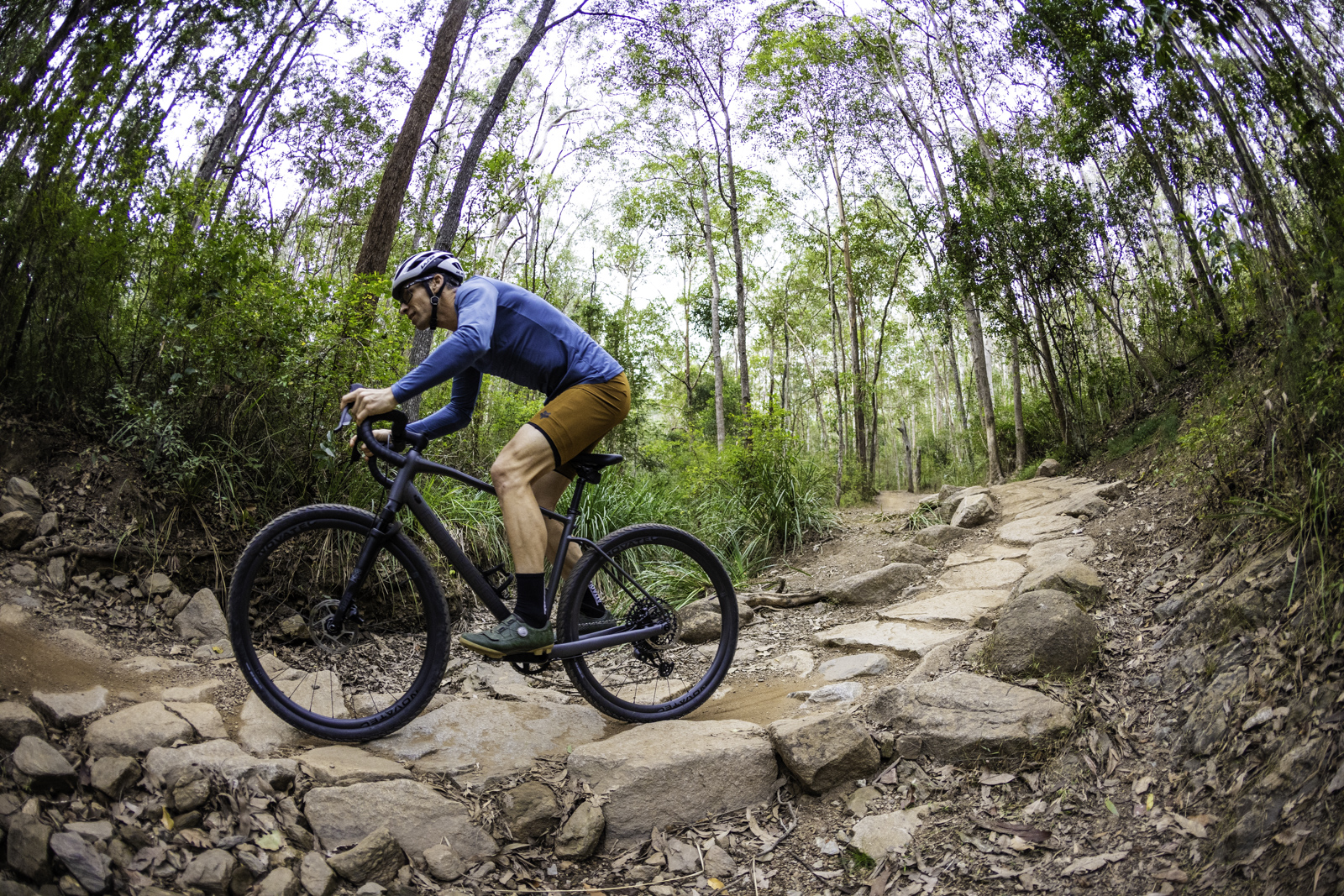
Photographer: Gerard Lagana
Tester: Mike Blewitt
Riding Experience: Enough to not be qualified for another job.
Generally Rides: Factor LS gravel bike, Norco Threshold
Height: 178cm
Weight: 72kg
Bike Test Track: Greater Brisbane, Nanango and Linville areas
There aren't many direct competitors available for gravel bikes with such wide range group sets, suspension forks and dropper posts. Giant have the Revolt X at $8999, considerably more given it has a carbon frame. Canyon have their Grizl Trail range, starting at $7949 – although they lack the dropper post and the carbon frames make them quite a premium price. Polygon may have found a sweet spot, putting premium features out there on an alloy frame, to stay close to $5000. Polygon state that the Bend range will be your 'ultimate adventure companion', so let's see.
Initial Impressions
Gravel bikes have a broad remit to meet. They need to be fast on smooth surfaces and capable off-road. A lot of social media may suggest they should be a singletrack weapon as well, but I don't really agree with that. To me, a gravel bike needs to be fast off road, making up time over a cross-country bike on smooth dirt roads, and holding its own on steeper terrain. That is not always achieved, which is why I tend to see my hardtail as the best gravel bike. I know it'll handle plenty of trails, but I just have to give up some speed and efficiency on fast terrain. So for a gravel bike to really deliver on versatility the bike must offer comfort and capability. When I tested the Trek Checkpoint two years ago, it did take a leap forward in capability thanks to the longer reach and the ability to run wider tyres. But capability off-road can come in many forms.
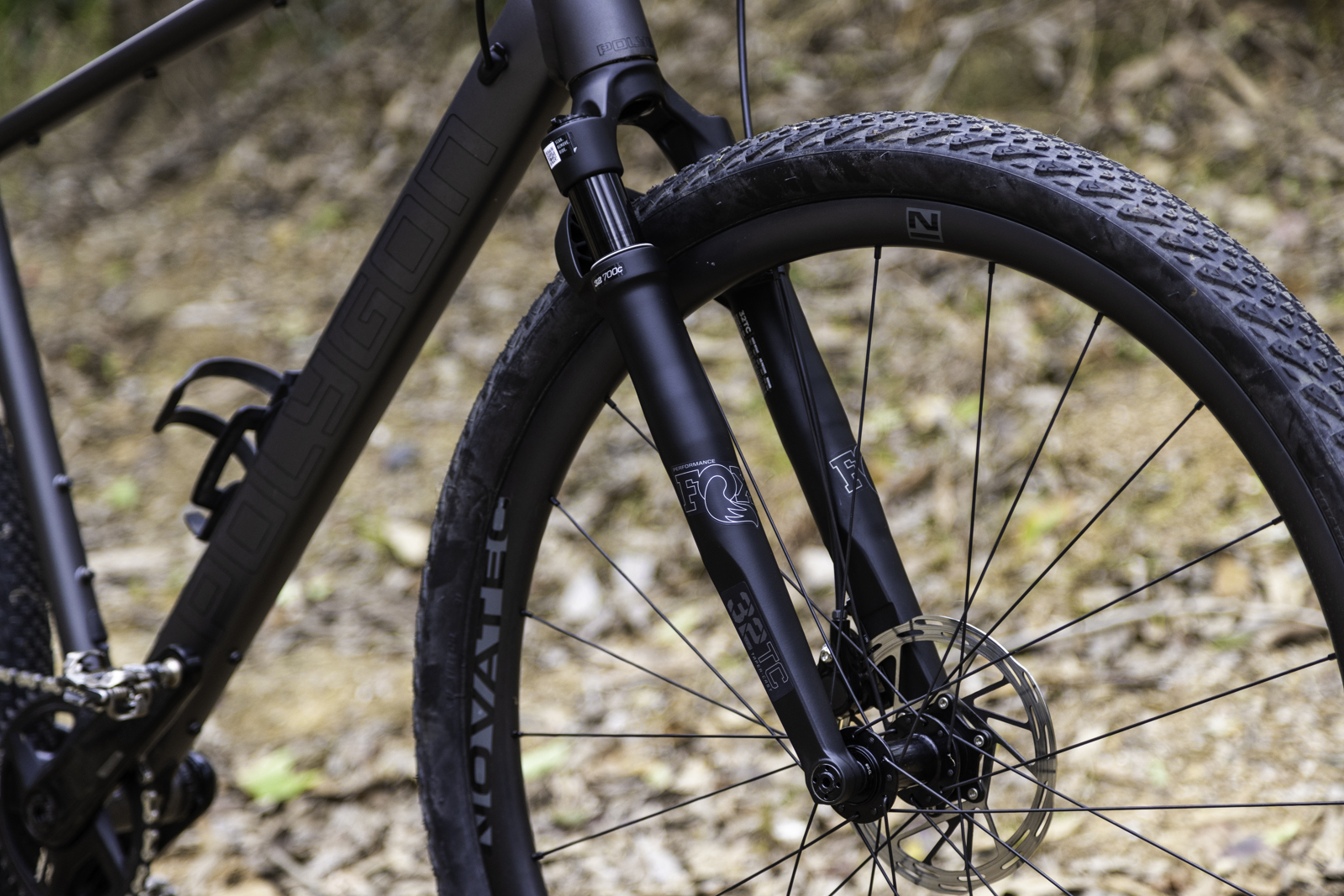
To this end you'll notice that the Bend is more upright than many gravel bikes which have morphed from road bikes. The Bend is available in four sizes from S-XL, and the large V9X I have on test has a 70 degree head angle, while the non-suspension models run at 70.5 degrees. The seat angle is 73 degrees compared to 73.5 degrees on the models without the Fox TaperCast 40mm fork. Smaller sizes have slightly slacker head angles and steeper seat angles. The frame has a tonne of tyre clearance, with the V9X coming equipped with 50mm Vee Rail tyres. The frame uses a 142×12 through axle, and there are mounts for racks and guards at the dropouts, and behind the seat tube as well.
In fact, there are mounts all over the frame, for top tube bags, bottle cages or other accessories – you can really load this up for a big trip, if that's your plan. There are a few other frame details of note – the bottom bracket shell is threaded, plus there is internal routing in the down tube for a dropper post – although the Bend V9X has a RockShox Reverb AXS post as stock. The chain stays have plenty of clearance, even with the 50mm Vee Rail tyre going through there.
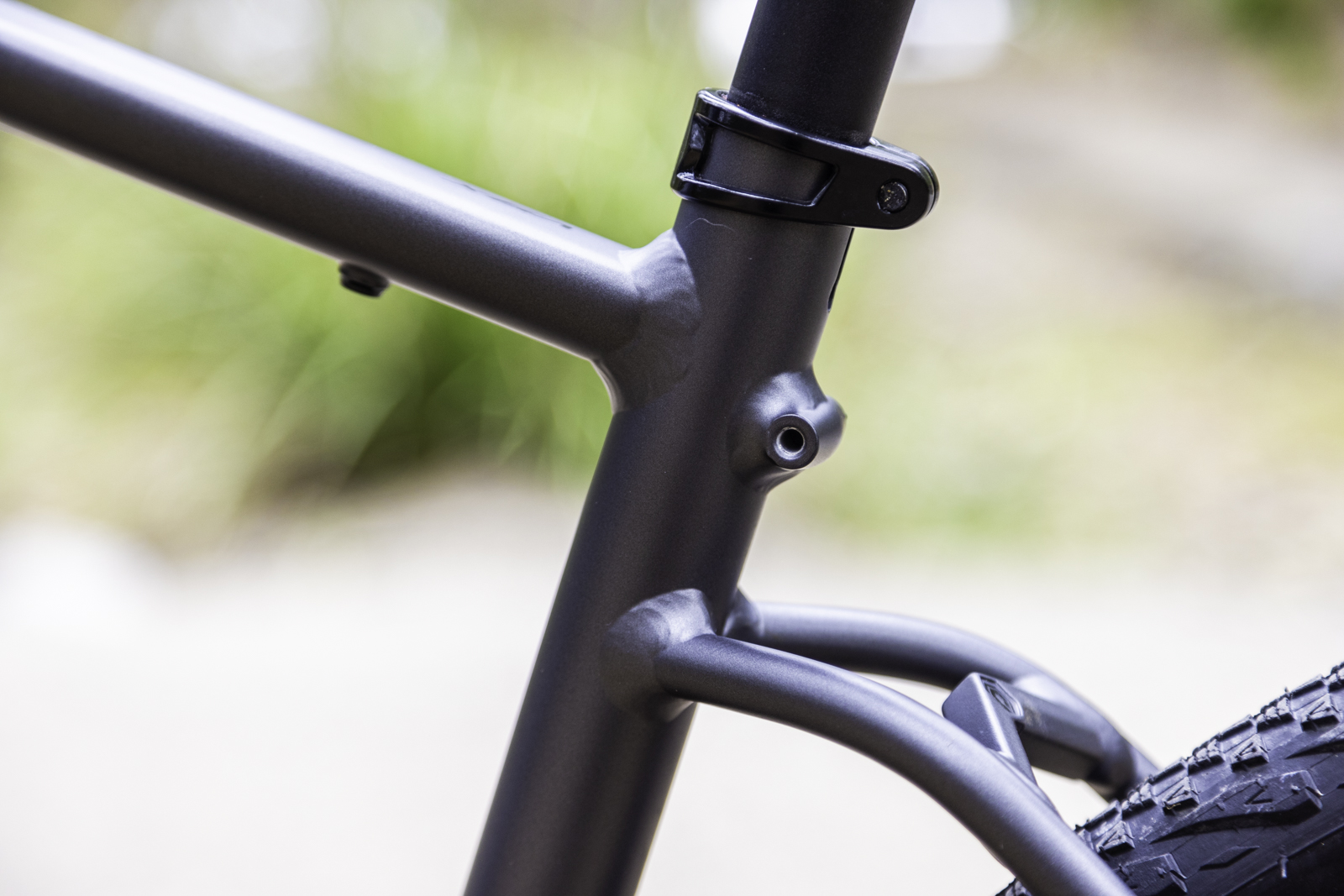
The Polygon Bend V9X I have on test has 12-speed SRAM Rival Etap AXS, but with a SRAM GX Eagle cassette (10-52) and GX AXS derailleur giving it a very wide range with the 40t chain ring. The carbon Novatec wheels have a 24mm internal width to provide good support for the 50mm tyres. The Fox Performance 32 Tapercast fork with 40mm of travel graces the front end. In large, my test bike weighs 11.17kg before adding pedals.
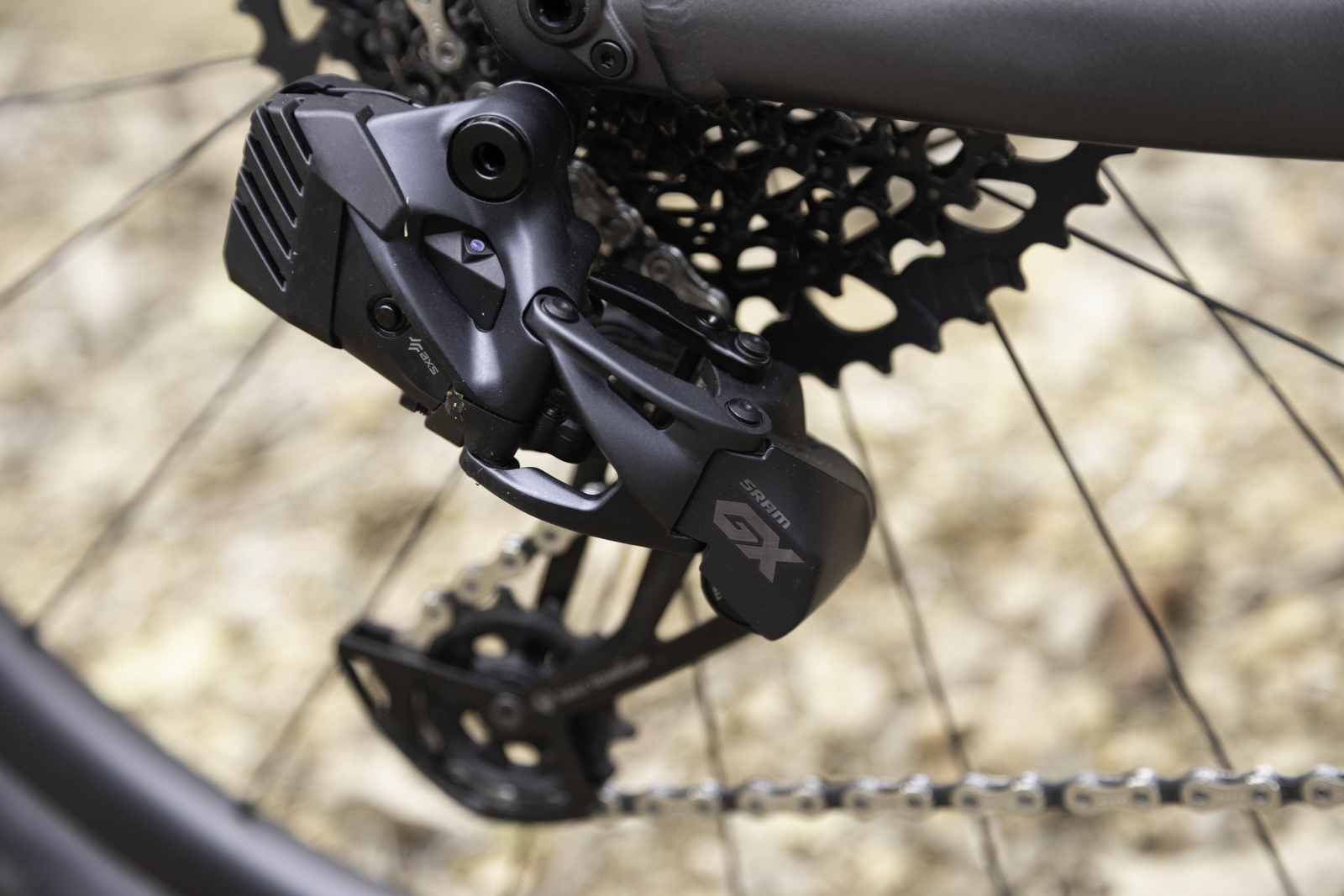
The bike came setup tubeless from Bikes Online, so I just added my own XTR clipless pedals, one bottle cage (to start) and set my position up. The reach is quite short given the tall head tube, short stem and short reach flared bars. I swapped out to an 80mm stem from the stock 50mm, and I think most people on a large would do the same. I followed the guide on the fork for suspension pressure, and ran 30/32psi front and rear for the tyres.
On The Trail
With the longer (but not long) stem fitted the ergonomics of the large Polygon Bend were ideal for me. A while ago, a gravel back was a lot longer with a slacker seat angle, which made them feel sluggish and a little reluctant to change direction. While the Bend doesn't have the same agility as a cyclocross bike, it's not as nervous as one either. Instead, I found the position quite central between the wheels, which aids handling off-road. This means you can push the front wheel into corners, and easily spring out of the saddle for a few hard pedal strokes.
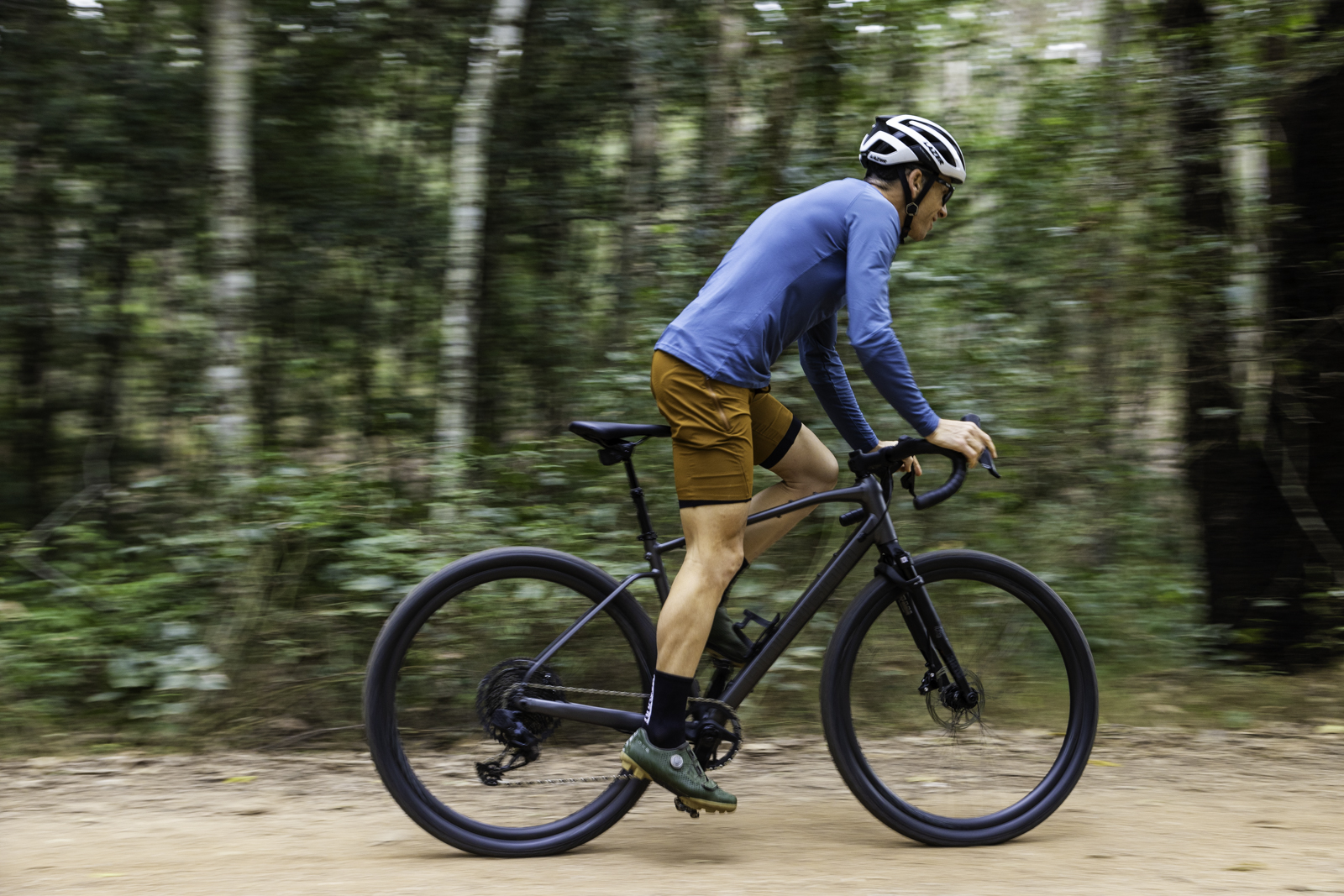
My first rides were on local multi-use trails and dirt roads. It is the sort of terrain I often take my own gravel bike on for short rides before work. It is easy to put together a 25-50km loop, all on terrain that suits a gravel bike. What I really noticed was how fast I could go on the Bend, due to more grip and control. I haven't owned a gravel bike capable of fitting 50mm tyres before, and the same goes for the short-travel suspension fork. It was easy to hold speed and stay in control over sections with roots or rocks, and through the slight dips and rises along a river side trail. It was a blast!
A lot of this is to do with the cockpit as well, with the flared bars and secure hood size. I was happy riding in the hoods for the post part, but did find that when hauling on the brakes my fingers would prevent full braking, as they'd jam between the levers and the bar. As such I'd move into the drops for more secure braking. I think this could be changed with a slightly different shifter position on the bar.
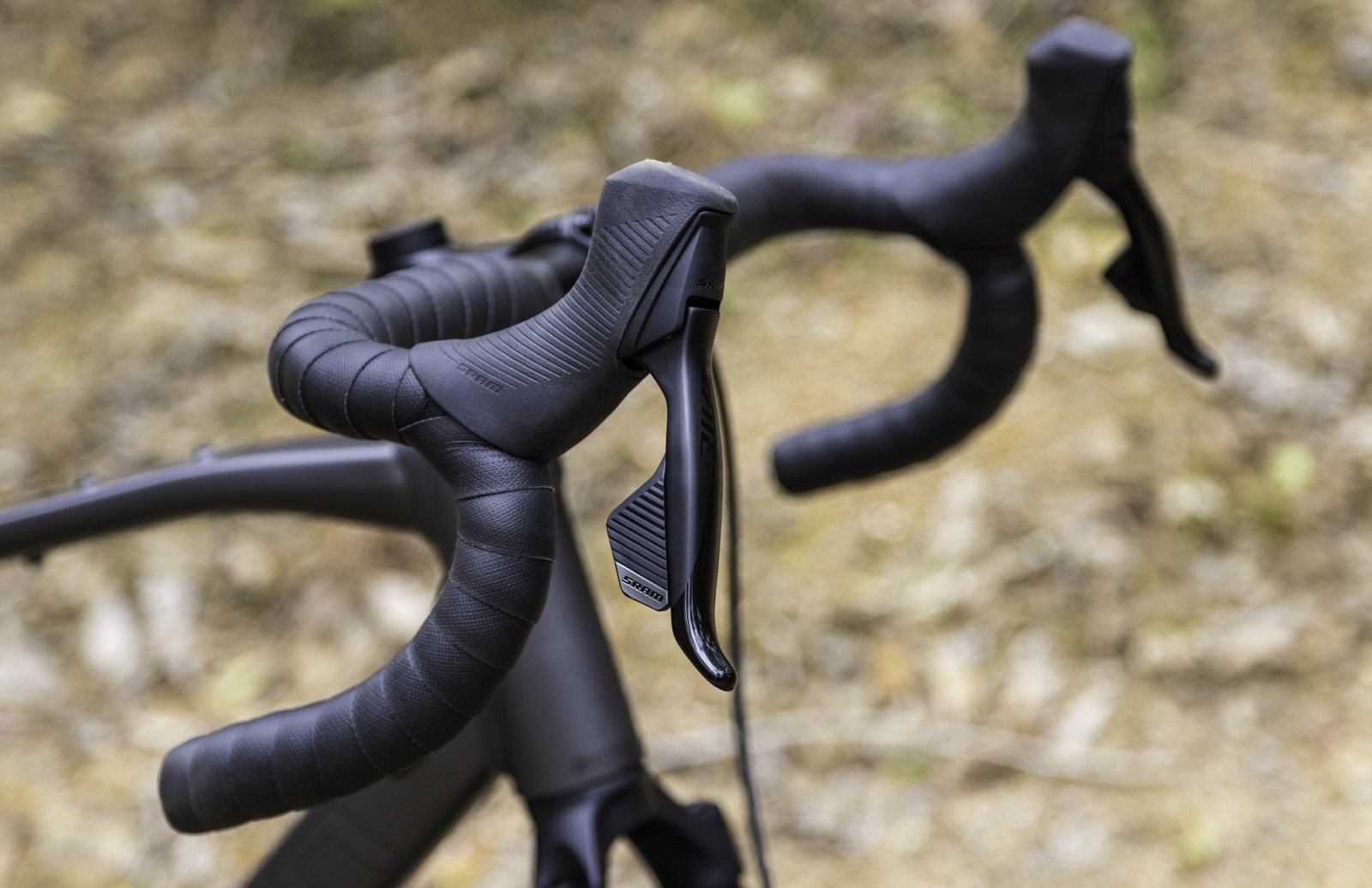
On some longer climbs it is clear that Polygon have provided all the gears you'll need. Sure, 40×52 isn't that low, but if you need lower you probably need to be on a mountain bike. If you were to load the Bend up with gear and take it onto a very hilly bikepacking route you may struggle with the gearing. But I think you would on any bike with the same gearing. I found it fine for some 15 minute climbs with sections up to 18%, but without any bikepacking gear.
On those same gradients, descents were fun, but not the same as when on a mountain bike. You tend to have less margin for error, and the fast-rolling Vee Rail tyres are good, but they don't have the same edge knob that you may be used to even on an XC mountain bike tyre. Your contact patch with the ground is everything, and it pays to really get the tyre pressure right for how you ride. On the longer descents I did find the Bend incredibly capable, but when it was getting rockier and steeper I just had to slow down more than I might on a mountain bike.
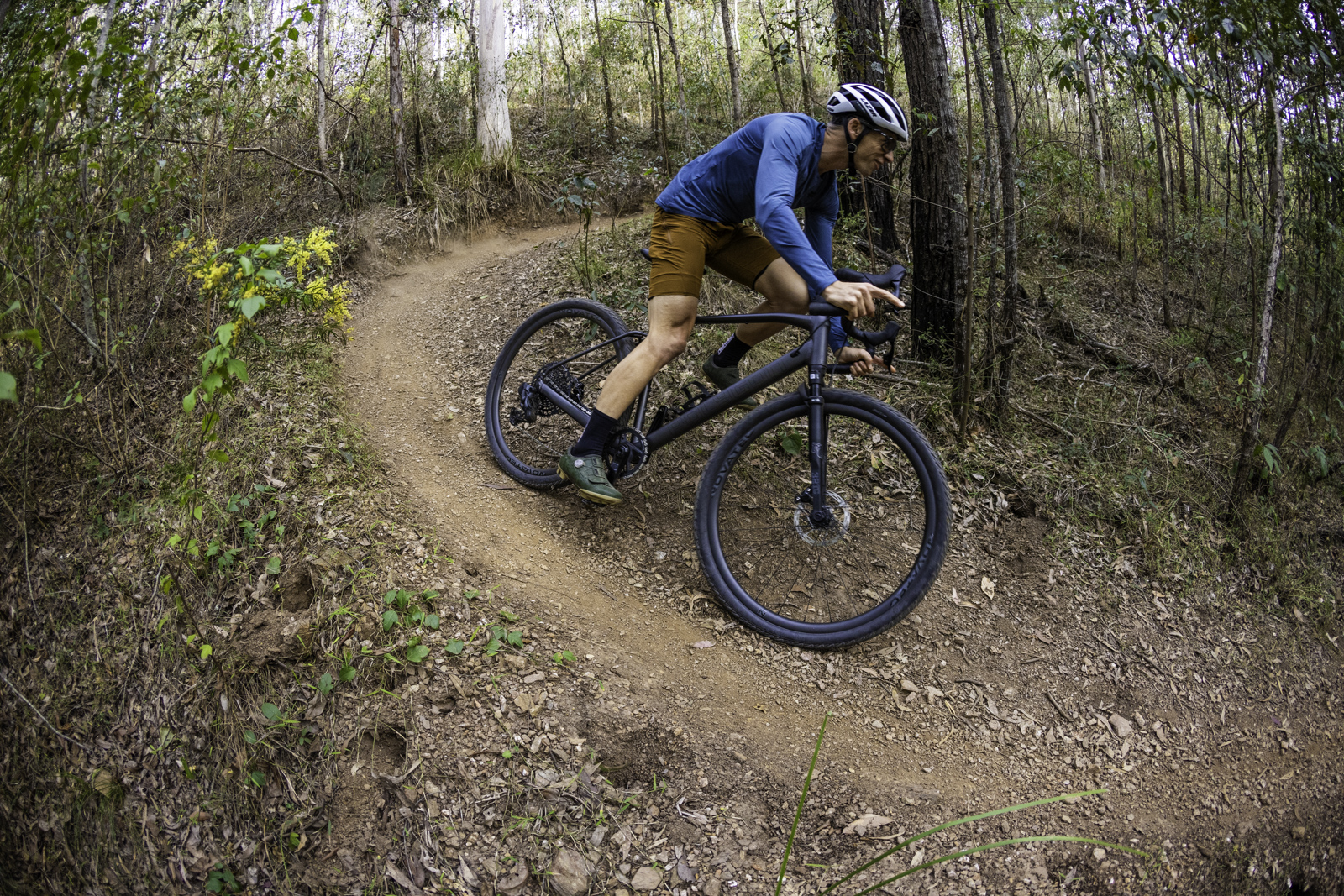
The suspension fork did make a big difference in how I could ride the Bend. Typically descending on a gravel bike, or riding anything that isn't smooth, sees you bracing and riding more rearwards than you might, to prevent the front wheel catching, pinching, or just sending you over the bars. But that changes with the Fox 32 TaperCast. With about 125psi in the tiny Grip damper, the 40mm of travel takes the edge off and smooths out transitions – I really came to appreciate having the fork on the Bend. The damper still has compression adjustment right on the top cap, and I found it easy enough to firm it up when on the road.
The dropper post certainly added to the capability of the Bend, but I found it less useful than the fork. I use my dropper post constantly on my cross-country bike, but didn't use it nearly as much on the Bend. In part, that's because I wasn't riding lots of singletrack with small drops and higher speed features on the Bend. I did use it through bigger V ditches for some more room to move around, and on steeper descents that had a bit more rock. Partly, with 75mm of drop it's not a huge difference. And knowing where the saddle is does help with handling on fast dirt roads and forest roads. But also, the ergonomics of an AXS dropper with the Rival shifters isn't always ideal, in a dropper post situation. You do need to hit both shift paddles, which is fine, but it does have a small impact on how you may be covering the brakes as well. It is probably more of a learned action, but I just found I didn't need to use it, whereas I was happy for the fork to be there the whole time.
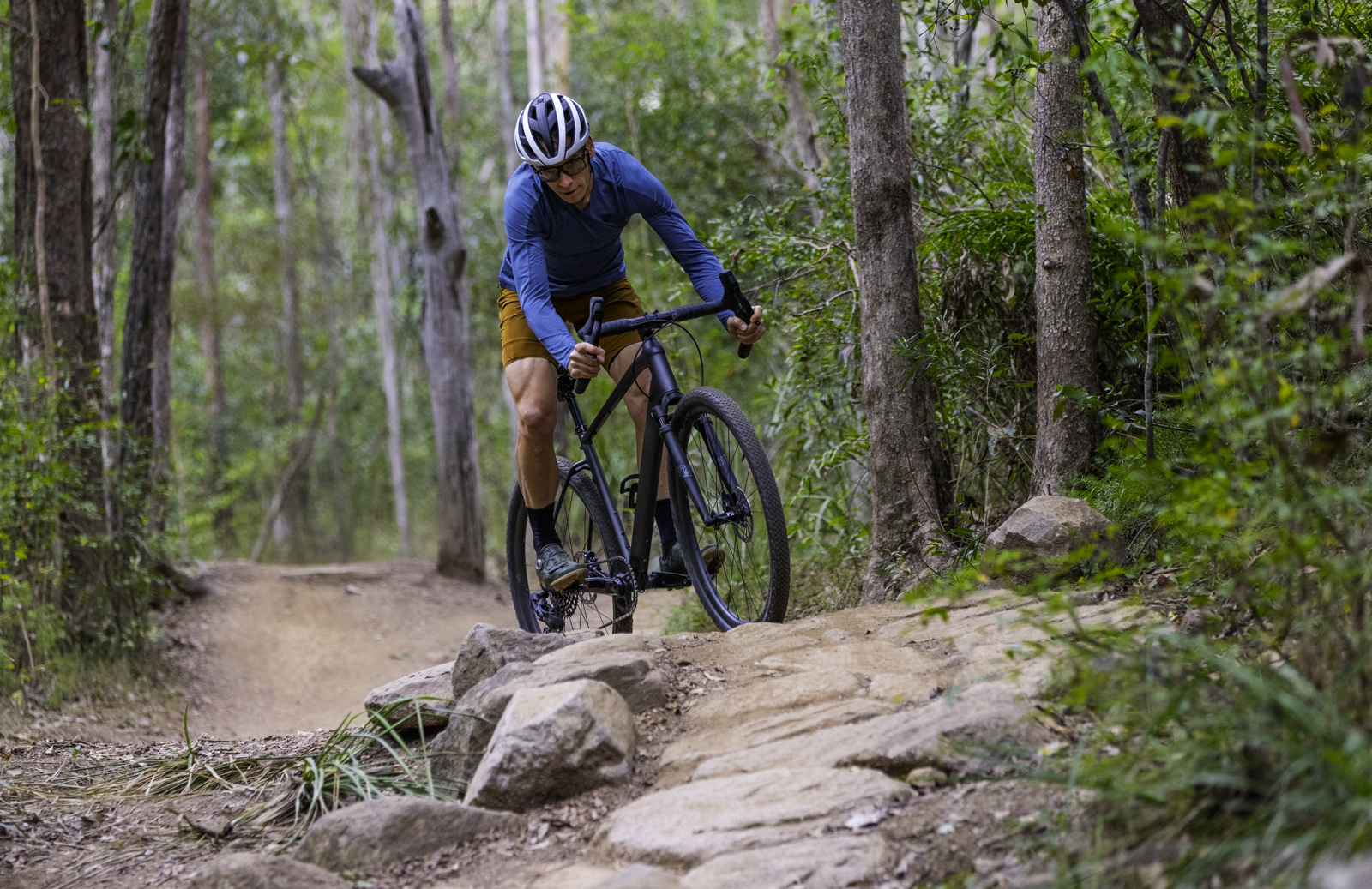
Our take
Polygon have delivered an incredibly fun gravel bike with the Bend V9X. By bringing such a wide-range wireless group set, proper sized gravel tyres, a short travel fork and wireless dropper post to a near $5000 price point is quite an achievement. This combination takes out a lot of my personal irks with gravel bikes, to make it a fun and capable bike for a lot of off-road use. No, it's not a mountain bike and the Bend isn't pretending to be. But it is a versatile adventure buddy, be that for loading up for a few days on backroads and trails, or getting out before or after work on some multi-use trails and forest roads – or whatever is close to home.
I do feel the V9X may not suit everyone, given it does push to over $5000 for an alloy gravel bike. And this is a bike type that for most will be an extra bike in the shed. As such, the R7 with 11-speed equipment, a carbon fork and wired dropper may provide a similar amount of fun for just $2299. But with any type of bike, if you want the cool equipment, it does cost more. And overall, I think Polygon have created a really versatile gravel bike that I had a lot of fun riding. I'd just take note on the sizing and get your bike fit right to get the most out of it.
Full specs on the Polygon Bend V9X
RRP $5299
Weight 11.17kg (as tested)
From bikesonline.com.au
Available Sizes S, M, L (tested), XL
Frame Material Aluminium
Fork Fox 32 TaperCast, 40mm
Shifters SRAM Rival Etap AXS, 12sp
Derailleur SRAM GX Eagle AXS, 12sp
Crank SRAM Rival, 40t
Bottom bracket SRAM DUB, BSA
Chain SRAM GX Eagle, 12sp
Cassette SRAM XG1275, 10-52t, 12sp
Wheel set Novatec G24 carbon, 24 spoke, 24mm internal
Tyres Vee Rail, 700x50mm
Brakes SRAM Rival, 160/160mm
Stem Entity, 50mm
Handlebars Entity Alloy Flare, 16 degree, 440mm
Seatpost RockShox Reverb AXS XPLR, 75mm drop
Saddle Entity Flux 2
